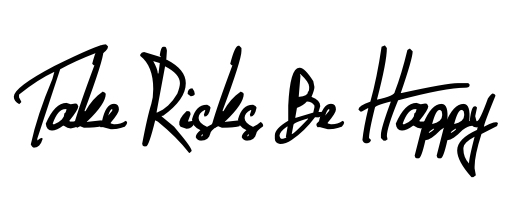The internet has revolutionized work–especially for writers. There are great freelance writing jobs available over the internet at high paying outlets, but you need to know where to look and know how to avoid scams. Here are some of the best places to find writing gigs online, along with links to other tips and tricks. Let’s get started!
Note: This post will be updated and expanded with new content, tips, and tricks as we discover them. Bookmark it, and be sure to subscribe to our newsletter for more!


Morning Coffee Newsletter
FreelanceWriting.com’s Morning Coffee Newsletter is a great resource with a good selection of freelance writing jobs in all genres. I’ve used this before and can recommend this as a top resource for nearly all types of writers. Freelancewriting.com, which publishes this newsletter, also has a job board and other resources, but I believe the newsletter provides the most value.

ProBlogger Job Board
The ProBlogger Job Board is another great resource to find freelance jobs–most of them in freelance writing. Frequently updated, there are many choices updated daily. However, the job quality is relatively inconsistent. I’ve found some great gigs on there that paid very well, but there are also jobs that are much less rewarding. Still, this is a key resource which has gigs for freelancers at different career stages.

Mediabistro
Mediabistro has a very high quality jobs search, and occasionally has freelance positions at major organizations. At the time of this writing, People Magazine is accepting submissions for freelancers. OZY, The Economist Group, and other AAA companies have listed freelance jobs here. Use their job search to type in writer to filter out the other positions. If you are qualified to fill these jobs, this is a great resource.

Linkedin is a social network focused on business connections and finding new jobs and contacts. What some people don’t know is that they also have a powerful job search tool which can be used to search for freelance writing jobs. I recommend setting up a profile on the site, although most of their jobs are full-time

Indeed
Indeed is like Linkedin–but without the profiles. (I.e. it is just a repository of jobs.) Still, they have a large number openings, including freelance writing jobs, which can be found using their search tool.

Journalism Jobs
Journalism Jobs is what it sounds like–a job resource for journalists. However, there are occasionally freelance listings, and besides, journalism is a tried and true way to get into the writing game. This is a resource to check occasionally.

Flexjobs
Flexjobs is a great website with many freelance writing, editing, and copywriting opportunities. Use their convenient search tools to search by location, type of job, whether it is remote, full-time or part-time, and more. This is a worthwhile resource.

We Work Remotely
We Work Remotely is a high quality job board which mostly has programming jobs, however, there are a selection of marketing, technical writing, copyrighting, and other similar jobs which hire writers.

Remote OK
Remote OK is another high quality tech focused job board. As with We Work Remotely, most jobs are in the programming, coding, and tech space, but they have a handy “non-tech” job search option for those of us who don’t know how to code.

Networking
No, networking is not a job board or a website–it’s something you have to do. Networking is crucial to finding writing jobs. Kristin Wong, writer for Lifehacker, told us in her interview that 5 out of her 6 most recent jobs came from networking. You don’t have to be a pro to network like one. Most professionals will answer a polite, concise email asking for advice.

Freelance Marketplaces
Freelance marketplaces like Upwork and Fiverr sometimes get a bad reputation in the freelance writing community–and it isn’t hard to see why. There are many low paying jobs on these sites which should not even be considered by those living in developed countries. Some websites about writing avoid discussing these at all, because they believe they are not good for your careers. However, if you are a beginner, you need to know about all your options–good or bad. Moreover, good gigs do exist on these sites, so I would argue that putting up a profile and occasionally looking for jobs on these sites may be worthwhile. Still, I would say these are probably your lowest priority options.

Upwork and Elance
How it works: Upwork and Elance are essentially marketplaces for freelancers that also acts as middlemen. (Note: Upwork owns Elance, and eventually the services may be merged.) You list your freelance services on Upwork/Elance for free, then apply for jobs that suit your skills. Employers can also ask you to apply for a job based on the quality of your profile. Upwork does take 10% your earnings, but having a middleman isn’t all bad–their escrow service makes it harder for you to get ripped off. Elance takes a 8.75% fee, but it will supposedly be rolled into UpWork later in 2016, meaning there may be little point to sign up with Elance anymore.
Pros:
-There are real jobs here, sometimes offered by large corporations, and some of them pay well.
-You can put up a profile and passively wait for jobs to be offered to you.
-Payment is through an escrow service, and the fact that Upwork takes 10% of your cash incentivizes them to make sure you get paid. Regrettably, this still doesn’t completely protect you from scams.
Cons:
-It can be hard to start up–many employers only hire people with experience, putting you in a nasty catch-22.
-Some clients require you install tracking software to prove that you were doing work.
-As with many freelance websites, simple jobs are dominated by foreign, low-cost providers.
-Upwork takes 10% of your money.

Fiverr
How it works: You list your freelance services on Fiverr and interested clients can hire you remotely. Although the site got famous as a way to pay people to do tasks for $5, most freelancers actually charge more, or at least offer higher tiers of service. So, you don’t necessarily have to worry about being stuck making next to nothing. Like Upwork, there is a review system, so the more popular providers generally get more jobs. Fiverr’s focus on small tasks can allow you to make money quickly and on your own schedule–if you find a good niche or choose a task you can complete quickly.
Pros:
-Fiverr’s focus on small tasks can allow you to make money quickly and on your own schedule.
-Lot’s of surprising niches to work in.
Cons:
-Fiverr takes 20% of your earnings–twice what Upwork takes.
-There is a 14 day hold time for getting your money.

How much should you charge?
If you’re doing online freelance writing, knowing what to charge is key. Of course, there is no one size fits all solution. Rates will vary based on your experience, the client’s budget, and what you are able to negotiate.
Figure out current going rates by visiting Who Pays Writers, a collection of anonymous, crowdsourced rates of major websites and magazines. Not only will this let you know what rates to expect, but it can help you decide which publications to pitch to earn more. (For an interesting first hand look at the economics of freelance writing, read this article by Noah Davis.)
Another resource that helps you determine how much you should charge is the Contently Rates Database, which contains real rates writers have received at many different publications.
Writers Market also has their “How much should I charge?” rates guide, with great information on rates in a number of fields, some of them very technical.
If you want to improve your writing even more, check out Come Write With Us a website with trips and tricks for writers and authors.
Note: This post will be updated and expanded with new content, tips, and tricks as we discover them.





